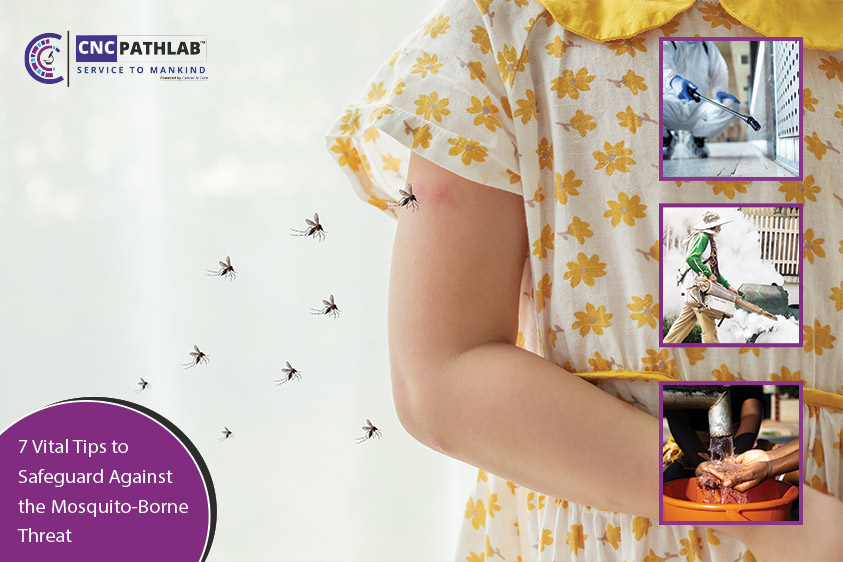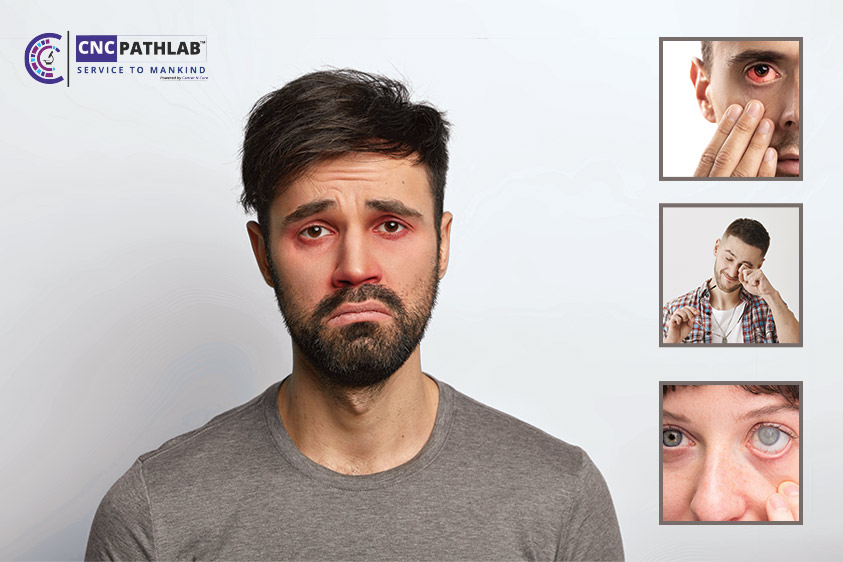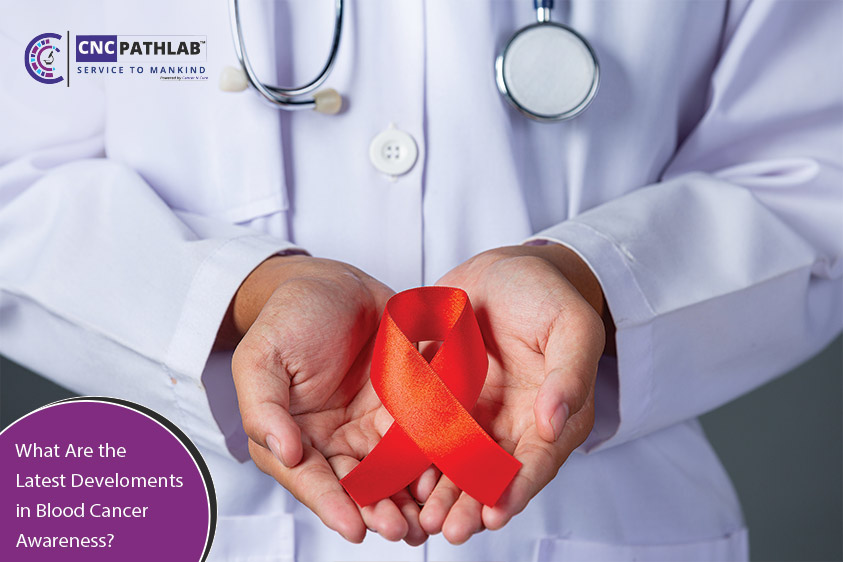7 Essential Tips to Protect Yourself from Mosquito Borne Diseases
Are you concerned about protecting yourself from mosquito-borne diseases? Mosquitoes can be carriers of dangerous illnesses such as dengue fever, malaria, and Zika virus. But don't worry, we've got you covered! In this blog post, we'll provide you with 7 essential tips to safeguard against the mosquito-borne threat. By following these simple yet effective measures, you can significantly reduce your risk and enjoy a mosquito-free environment. Let's dive in!
Tip 1: Use mosquito repellent
to protect yourself from mosquito-borne diseases. Opt for a repellent containing DEET or picaridin, as these ingredients are highly effective against mosquitoes. Apply the repellent to both your exposed skin and clothing, ensuring maximum coverage and protection. Keep doors and windows closed to prevent mosquitoes from entering your living space.
Choose a repellent with DEET or picaridin
When selecting a mosquito repellent, opt for one that contains either DEET or picaridin. These two active ingredients are highly effective in repelling mosquitoes and reducing the risk of mosquito-borne diseases. Make sure to apply the repellent evenly on your exposed skin and clothing before heading outdoors.
- Choose a repellent with DEET or picaridin and protect yourself from mosquito bites. These powerful active ingredients act as an effective shield against mosquitoes, keeping you safe from potential diseases they carry. Before stepping outside, remember to apply the chosen repellent to both your skin and clothing, ensuring full coverage for ultimate protection against these pesky insects.
Apply repellent to exposed skin and clothing
Apply repellent to exposed skin and clothing for maximum protection against mosquito bites. Make sure to cover all areas of exposed skin, including arms, legs, and neck. Don't forget to apply the repellent on your clothing as well, paying special attention to cuffs, collars, and openings such as buttons or zippers. By doing so, you create an effective barrier that will help keep mosquitoes away from you. Remember to reapply the repellent every few hours or after sweating excessively or swimming in order to maintain its effectiveness throughout the day.
When applying repellent indoors, make sure all doors and windows are closed tightly to prevent any mosquitoes from entering your living space. This helps create a protective environment where you can relax without worrying about these pesky insects buzzing around.
Tip 2: Wear protective clothing
Wear protective clothing such as long sleeves and pants to cover your arms and legs. This will help minimize the exposure of your skin to mosquito bites, reducing the risk of contracting mosquito-borne diseases.
In addition, make use of mosquito nets or screens on windows and doors. These barriers act as a physical shield, preventing mosquitoes from entering your living spaces and significantly decreasing the chances of being bitten.
Cover your arms and legs with long sleeves and pants
Covering your arms and legs with long sleeves and pants is a key measure to protect yourself from mosquito-borne diseases. By wearing clothing that covers your limbs, you create a physical barrier against mosquitoes, reducing the risk of being bitten. This simple precaution helps minimize exposure to potential disease-carrying mosquitoes, ensuring your safety during outdoor activities.
Use mosquito nets or screens on windows and doors
Use mosquito nets or screens on windows and doors to prevent mosquitoes from entering your living spaces. These barriers act as a physical deterrent, blocking the entry of mosquitoes into your home and reducing the risk of mosquito-borne diseases. Ensure that the nets or screens are in good condition without any holes or tears to maintain their effectiveness.
Tip 3: Eliminate mosquito breeding sites
Remove standing water from containers, gutters, and flower pots to eliminate potential mosquito breeding sites. Mosquitoes lay their eggs in stagnant water, so make sure to regularly empty any containers that hold water around your home. Clean out gutters to prevent them from becoming clogged with leaves and debris where water can accumulate. Additionally, ensure flower pots are not sitting in saucers filled with water as this can attract mosquitoes. By eliminating these sources of standing water, you can significantly reduce the risk of mosquito-borne diseases.
Keep your surroundings clean and free of clutter to minimize areas where mosquitoes could breed. Remove any objects or debris from your yard that may collect rainwater or create pockets of moisture. Trim overgrown vegetation and keep grass cut short to discourage mosquitoes from resting or hiding in shaded areas. Maintaining a clean environment reduces the likelihood of mosquitos finding suitable breeding grounds and helps protect yourself against mosquito-borne threats effectively
Remove standing water from containers, gutters, and flower pots
- Eliminate any stagnant water in containers, gutters, and flower pots to prevent mosquito breeding grounds.
- Regularly empty and clean bird baths, pet water bowls, and children's pools.
- Ensure that rainwater does not collect in outdoor containers or buckets.
- Clear clogged gutters to avoid standing water accumulation.
Keep your surroundings clean and free of clutter
A clean and clutter-free environment is crucial in preventing mosquito-borne diseases. Follow these simple steps to keep your surroundings free of mosquitoes:
- Clear any stagnant water from containers, gutters, and flower pots.
- Regularly empty and clean bird baths or pet water bowls.
- Dispose of any trash or debris that can collect rainwater.
- Trim bushes and shrubs to eliminate potential hiding spots for mosquitoes.
- Keep grass cut short to prevent mosquitos from resting in tall vegetation.
By maintaining a clean and clutter-free environment, you significantly reduce the risk of mosquito infestations and protect yourself against mosquito-borne diseases.
Tip 4: Be cautious during peak mosquito activity
1. Avoid outdoor activities around dawn and dusk when mosquitoes are most active.
2. Take extra precautions in areas with high mosquito populations, such as wearing long-sleeved clothing and applying insect repellent regularly.
Avoid outdoor activities during dawn and dusk
Avoiding outdoor activities during dawn and dusk is crucial in minimizing your exposure to mosquitoes, especially those that carry dangerous diseases. Mosquitoes are most active during these times, increasing the risk of bites. It is best to schedule your outdoor activities for other times of the day when mosquito activity is lower.
In areas with high mosquito populations, taking extra precautions becomes even more important. This includes using insect repellent, wearing long sleeves and pants, and staying in well-screened or air-conditioned areas whenever possible. By implementing these measures, you can significantly reduce your chances of being bitten by mosquitoes and protect yourself from potential mosquito-borne illnesses.
Use extra precautions in areas with high mosquito populations
When visiting areas with high mosquito populations, it is crucial to take extra precautions to protect yourself from mosquito-borne diseases. Use insect repellent containing DEET or picaridin on exposed skin and clothing, wear long sleeves and pants, and consider staying indoors during peak mosquito activity periods such as dawn and dusk. Additionally, ensure that windows are screened properly to prevent mosquitoes from entering your living space. By implementing these measures, you can greatly reduce the risk of contracting harmful diseases transmitted by mosquitoes.
Tip 5: Install mosquito-repellent devices
- Electric mosquito repellent mats or coils can be effective in keeping mosquitoes away. These devices release a smoke that repels mosquitoes, providing protection for a certain area.
- Another option to consider is using mosquito-repellent candles or lamps. These products contain ingredients such as citronella oil which are known to repel mosquitoes and create an inhospitable environment for them.
Note: The above paragraphs provide brief and concise information about installing mosquito repellent devices without unnecessary repetition or transitional words/phrases.
Use electric mosquito repellent mats or coils
Electric mosquito repellent mats or coils are effective in keeping mosquitoes away. These devices emit a scent that repels mosquitoes, helping to create a mosquito-free environment. Consider using these products indoors and outdoors to maximize protection against mosquito bites.
Benefits of using electric mosquito repellent mats or coils:
- Easy to use and convenient
- Provides continuous protection against mosquitoes
- Safe for indoor use
- Can be used outdoors as well
- Effectively repels mosquitoes and reduces the risk of mosquito-borne diseases
Consider using mosquito repellent candles or lamps
- Mosquito repellent candles and lamps are effective in keeping mosquitoes away from your immediate surroundings.
- These products work by emitting a scent that repels mosquitoes, making them less likely to bother you.
- Look for candles or lamps that contain natural ingredients like citronella oil, which is known to have mosquito-repellent properties.
- Place the candles or lamps strategically around your outdoor space to create a barrier against mosquitoes.
Tip 6: Seek medical advice if needed
1. Monitor your health closely and seek immediate medical attention if you experience any symptoms such as high fever, severe headache, body aches, or rash. Prompt diagnosis and treatment can prevent complications from mosquito-borne diseases.
2. It is important to consult with a healthcare professional who specializes in infectious diseases if you have been exposed to mosquitoes in an area known for transmitting specific diseases. They can provide accurate diagnosis, recommend appropriate blood tests or vaccines, and guide you on the best course of action to protect your health.
Consult a healthcare professional if you develop symptoms
If you experience any of the following symptoms after being bitten by a mosquito, it is important to seek medical advice from a healthcare professional:
- High fever
- Severe headache
- Body aches and joint pain
- Fatigue and weakness
- Nausea or vomiting
These symptoms could be signs of a mosquito-borne disease such as dengue fever, malaria, or Zika virus. Early diagnosis and treatment are crucial to prevent complications and ensure prompt recovery.
Get vaccinated if a vaccine is available for the specific disease
Get vaccinated against mosquito-borne diseases if a vaccine is available. Vaccines can provide crucial protection against specific diseases such as dengue fever or Zika virus. Consult your healthcare professional to determine which vaccines are recommended for your area and take proactive steps to safeguard your health.
Tip 7: Stay informed about mosquito-borne diseases
Stay updated on disease outbreaks in your area. Regularly check for updates from local health authorities or reputable sources to stay informed about mosquito-borne diseases prevalent in your region. Being aware of the current situation will help you take necessary precautions and protect yourself effectively.
Follow guidelines and recommendations from health authorities. Pay attention to the advice provided by health authorities regarding mosquito-borne diseases, such as using insect repellents, wearing protective clothing, and ensuring proper sanitation practices. By following these guidelines, you can reduce the risk of contracting potentially harmful illnesses transmitted by mosquitoes.
Stay updated on disease outbreaks in your area
Stay vigilant and stay updated on disease outbreaks in your area. Regularly check local health department websites, news outlets, and official social media channels for the latest information regarding mosquito-borne diseases. Being aware of any outbreak or increased risk will help you take necessary precautions to protect yourself and your loved ones.
In addition to staying informed, it is crucial to follow guidelines and recommendations from health authorities. These organizations have experts who closely monitor disease trends and provide valuable advice on prevention strategies. By adhering to their guidance, such as using insect repellent and wearing protective clothing, you can significantly reduce the risk of contracting mosquito-borne diseases.
Follow guidelines and recommendations from health authorities
Being aware of disease outbreaks in your area is crucial in protecting yourself from mosquito-borne diseases. Stay updated on the latest information by regularly checking news updates and official announcements from health authorities. This will enable you to take necessary precautions and adjust your routines accordingly.
Following guidelines and recommendations from health authorities is essential for safeguarding against mosquito-borne threats. These organizations conduct thorough research and analysis to provide accurate information on preventive measures. By adhering to their guidelines, such as using insect repellents, wearing protective clothing, and eliminating breeding sites around your home, you can effectively reduce the risk of mosquito-borne diseases.


.jpg)

.jpg)
